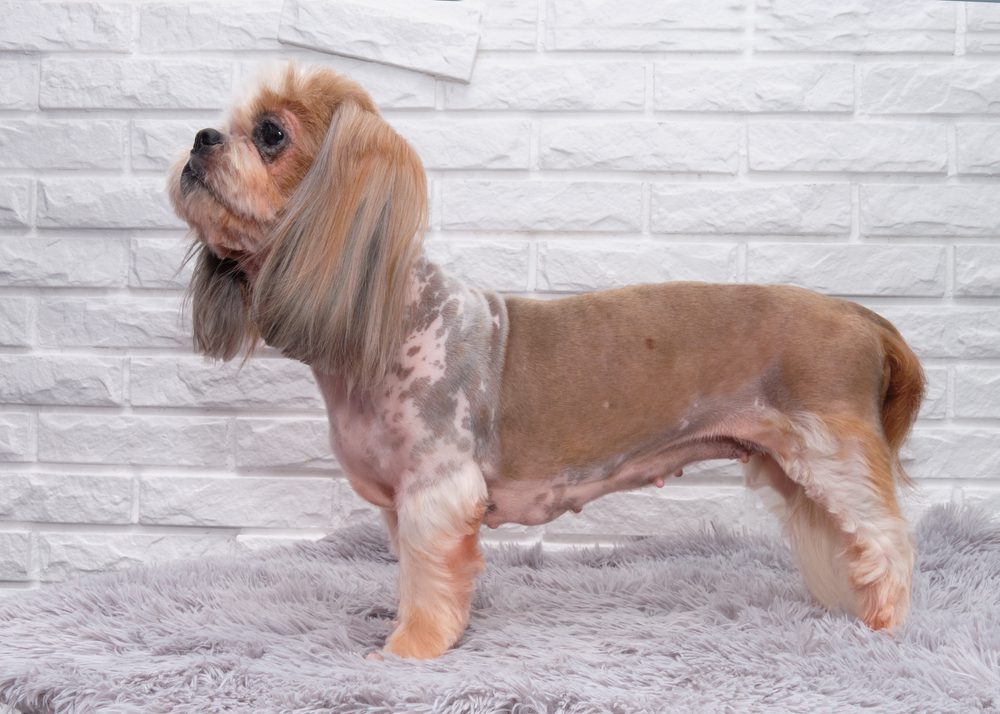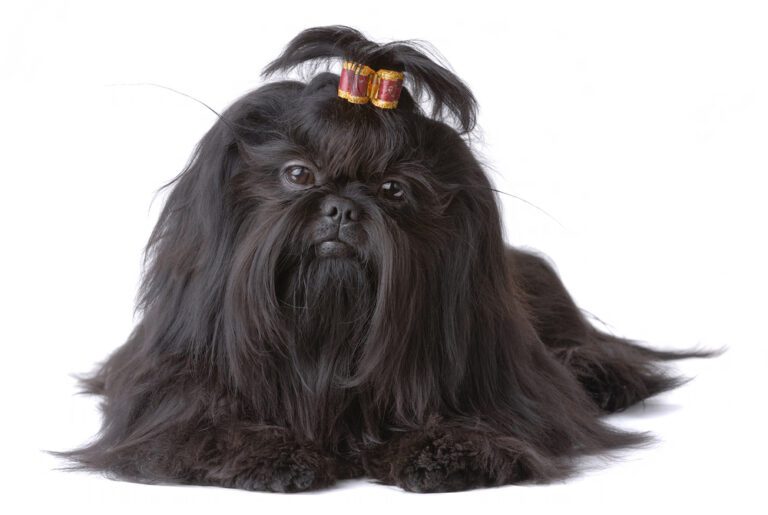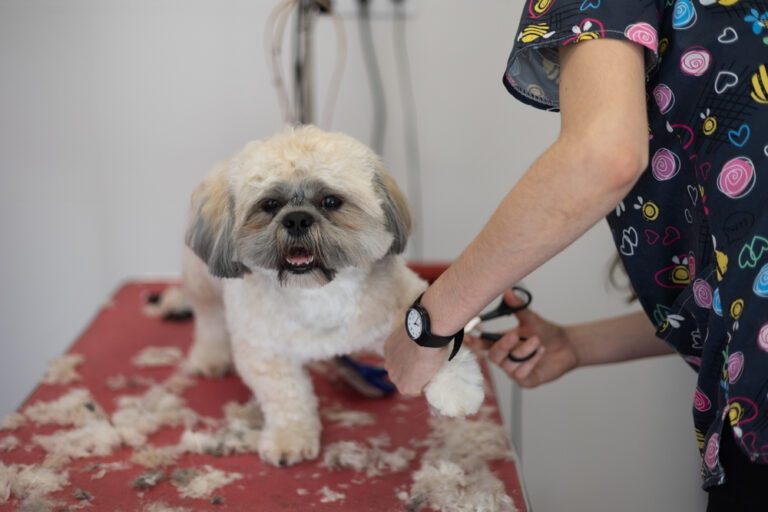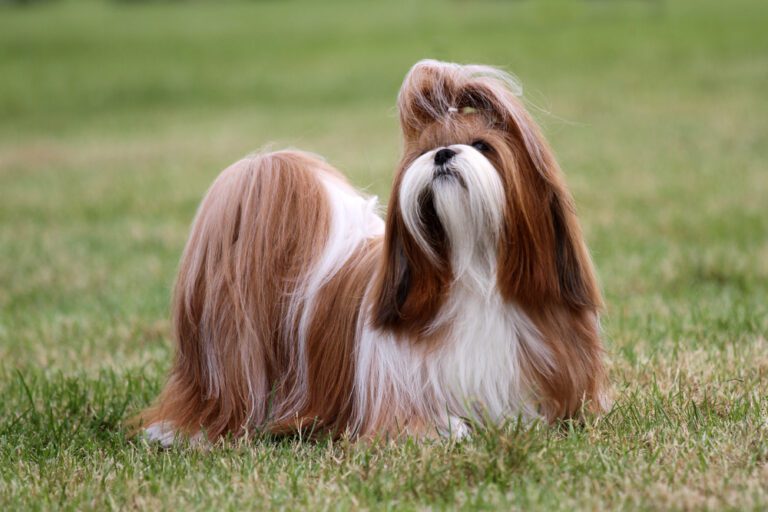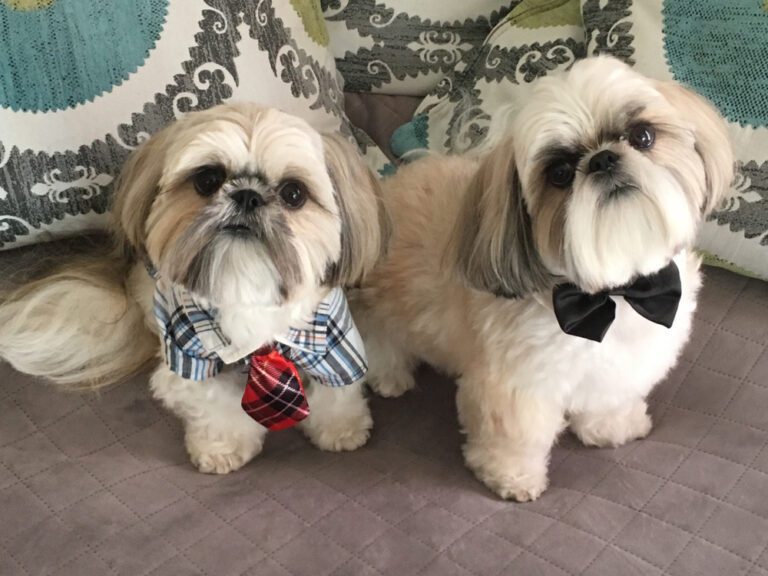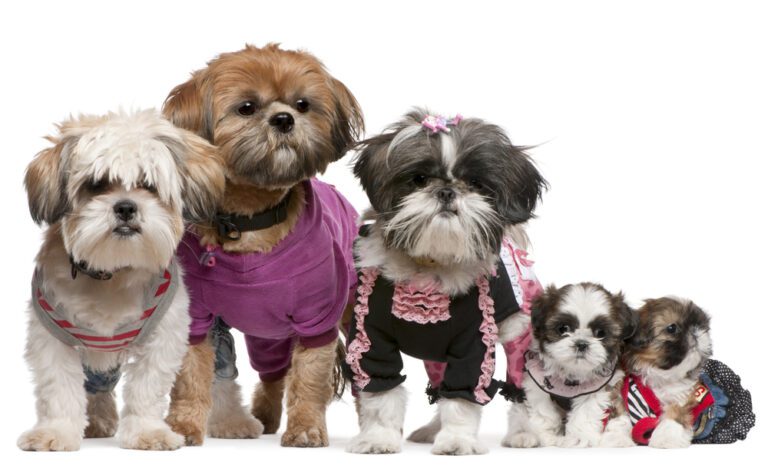Balding in Shih Tzus: What You Need to Know A Comprehensive Guide
Balding in Shih Tzus can cause concern for many dog owners. Understanding why this happens is the first step in addressing the issue. Shih Tzus are known for their luxurious and long coats, so it can be alarming when they start losing hair. While it’s normal for dogs to shed, excessive hair loss or bald spots may indicate an underlying problem.
Shih Tzus can experience hair loss due to various factors, including genetics, allergies, hormonal imbalances, or skin infections. It’s important to note that not all hair loss in Shih Tzus is related to balding. Some dogs may experience seasonal shedding or thinning of the coat, a natural process. However, if you notice excessive or sudden hair loss, it’s essential to investigate further to determine the cause.
Common causes of balding in Shih Tzus
There are several common causes of balding in Shih Tzus. One of the primary factors is genetics. Some Shih Tzus are predisposed to hair loss due to their genetic makeup. If a dog’s parents or ancestors have a history of balding, there’s a higher chance that the dog may experience the same issue.
Allergies can also contribute to balding in Shih Tzus. Dogs can be allergic to certain foods, environmental factors such as pollen or dust mites, or even certain grooming products. When a Shih Tzu has an allergic reaction, it can lead to intense itching and scratching, resulting in hair loss and bald spots.
Hormonal imbalances, such as an underactive thyroid or Cushing’s disease, can also cause hair loss in Shih Tzus. These conditions affect the dog’s overall health and can result in thinning or bald patches. Additionally, skin infections, such as ringworm or bacterial folliculitis, can lead to hair loss and require specific treatments to resolve.
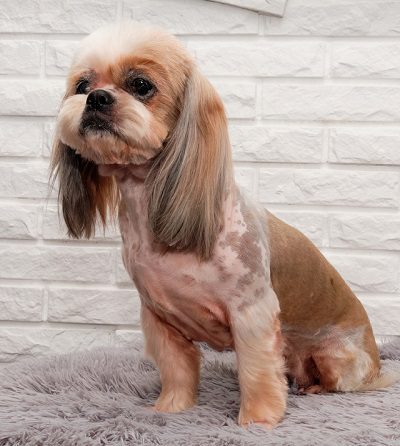
Signs and symptoms of balding in Shih Tzus
Shih Tzu owners need to be aware of the signs and symptoms of balding. This knowledge can help identify the issue early and seek appropriate treatment. Some common signs of balding in Shih Tzus include:
Excessive shedding
While some shedding is normal, if you notice excessive hair in your home or your dog’s bedding, it may indicate a problem.
Bald spots
Look for areas on your Shih Tzu’s body where the hair has completely fallen out, leaving a bald patch behind.
Redness or inflammation
If your Shih Tzu’s skin appears red, inflamed, or irritated in certain areas, it may indicate an underlying issue.
Itching and scratching
Constant scratching or biting at the skin can lead to balding, as the dog’s excessive grooming damages the hair follicles.
Dry or flaky skin
Abnormal dryness or flakiness of the skin can indicate an underlying problem.
If you notice any of these signs or symptoms, it’s essential to consult with a veterinarian for a proper diagnosis and treatment plan.
Is it okay for a Shih Tzu to be bald?
Many Shih Tzu owners wonder if it’s okay for their dogs to be bald. The answer depends on the underlying cause of the balding. If the hair loss is due to a temporary issue, such as seasonal shedding or a mild skin infection, it may not cause significant concern.
However, seeking veterinary care is essential if other symptoms accompany the balding or persist for an extended period. Balding caused by genetic factors, allergies, or hormonal imbalances may require specific treatments or lifestyle changes to manage the condition effectively.
It’s important to remember that each dog is unique, and what may be considered normal for one Shih Tzu may not be the same for another. If you have doubts or concerns about your Shih Tzu’s balding, it’s always best to consult a veterinarian for professional advice.
Dealing with bald spots in Shih Tzus
Bald spots in Shih Tzus can be distressing for the dog and its owner. Fortunately, there are steps you can take to help manage and treat these areas. Here are some tips for dealing with bald spots in Shih Tzus:
- Keep the affected area clean: Regularly clean the bald spots with a gentle, hypoallergenic shampoo recommended by your veterinarian. This helps prevent any further infections or irritation.
- Avoid excessive grooming: Over-grooming can further damage hair follicles and delay healing. Limit brushing or combing the bald spots to avoid causing any additional harm.
- Use supplements: Your veterinarian may recommend specific supplements or dietary changes to promote healthy hair growth. Omega-3 fatty acids, biotin, and zinc often benefit dogs with hair loss.
- Address allergies: If your Shih Tzu’s bald spots are due to allergies, identify and eliminate the allergens. This may involve changing their diet, using hypoallergenic grooming products, or adjusting their living environment.
- Protect from sun exposure: Bald spots can be more susceptible to sunburn. Consider applying pet-safe sunscreen or protective clothing to shield your Shih Tzu from harmful UV rays.
Remember, treating bald spots in Shih Tzus requires patience and consistency. Following your veterinarian’s guidance and monitoring your dog’s progress over time is essential.
How to care for a bald Shih Tzu puppy
Caring for a bald Shih Tzu puppy requires special attention and care. Here are some essential tips to ensure their well-being:
- Maintain a clean environment: Keep the area where your bald Shih Tzu puppy spends most of its time clean and free from dust, allergens, and irritants. Regularly vacuum and wash bedding to minimize potential triggers for skin issues.
- Provide a balanced diet: A nutrient-rich diet promotes healthy hair growth in bald Shih Tzu puppies. Consult with your veterinarian to determine the appropriate diet and any necessary supplements.
- Protect from extreme temperatures: Bald puppies are more susceptible to temperature changes. Ensure they have a comfortable and warm environment during cold weather and provide shade and cool areas during hot weather.
- Regular veterinary check-ups: Bald Shih Tzu puppies may require more frequent visits to the veterinarian to monitor their condition and adjust treatments accordingly. Regular check-ups help identify any potential issues early on.
- Gentle grooming: Be extra gentle when grooming a bald Shih Tzu puppy to avoid causing any discomfort or further irritation. Use soft brushes or combs, and avoid pulling or tugging on the hair.
With proper care and attention, bald Shih Tzu puppies can lead happy and healthy lives.
Shaving a Shih Tzu bald: Pros and cons
Shaving a Shih Tzu bald is a decision that should not be taken lightly. While it may seem like a quick solution to manage hair loss or make grooming more accessible, there are pros and cons.
Pros of shaving a Shih Tzu bald:
- Reduced grooming time: Shih Tzus, with long hair, requires regular grooming to prevent matting and tangling. Shaving the dog’s hair can significantly reduce the time and effort spent on grooming.
- Improved hygiene: Keeping the dog’s skin clean and free from debris or parasites is easier with a shaved coat. This can help prevent skin infections and other related issues.
- Better visibility of skin conditions: Shaving the hair allows for closer skin examination, making it easier to identify any underlying skin conditions or abnormalities.
Cons of shaving a Shih Tzu bald:
- Sunburn and temperature sensitivity: Shih Tzus has sensitive skin and can be prone to sunburn and temperature sensitivity. Without their protective coat, they are more vulnerable to these environmental factors.
- Altered appearance: Shih Tzus are known for their beautiful, long coats; shaving them bald dramatically changes their appearance. Some owners may not find the shaved look appealing.
- Potential for uneven hair growth: The hair may not grow back evenly after shaving, resulting in a patchy or uneven coat.
Before deciding to shave a Shih Tzu bald, it’s crucial to consult with a professional groomer or veterinarian to discuss the pros and cons based on your dog’s individual needs.
Treating balding in Shih Tzus: Tips and techniques
Treating balding in Shih Tzus requires a multi-faceted approach to address the underlying cause and promote hair regrowth. Here are some tips and techniques to consider:
Veterinary consultation
Schedule an appointment with a veterinarian to determine the cause of the balding and develop a personalized treatment plan.
Medications
Depending on the underlying cause, your veterinarian may prescribe anti-inflammatories, antibiotics, or antifungal drugs to treat the condition and stimulate hair regrowth.
Allergy management
If allergies cause the balding, your veterinarian may recommend allergy testing and prescribe medications or suggest dietary changes to manage the allergies effectively.
Dietary supplements
Certain dietary supplements, such as omega-3 fatty acids, biotin, and zinc, can promote healthy hair growth in Shih Tzus. Consult with your veterinarian to determine the appropriate supplements for your dog.
Stress reduction
Stress can contribute to hair loss in dogs. Creating a calm and stress-free environment for your Shih Tzu can help improve their overall well-being and promote hair regrowth.
Following your veterinarian’s recommendations and being patient during treatment is essential. Hair regrowth may take time, but with proper care and treatment, many Shih Tzus can regain a healthy coat.
Seeking professional help: Balding Shih Tzu services and treatments
When dealing with balding in Shih Tzus, professional help can be crucial in effectively diagnosing and treating the condition. Here are some benefits and treatments that can aid in managing balding Shih Tzus:
Veterinary dermatologist
If your Shih Tzu’s balding is complex or doesn’t respond to initial treatments, seeking the expertise of a veterinary dermatologist is recommended. These specialists have advanced knowledge in diagnosing and treating skin issues in dogs.
Grooming professionals
Professional groomers can guide proper grooming techniques and recommend specific products suitable for Shih Tzus with hair loss. They can also offer advice on maintaining a healthy coat and skin.
Laser therapy
Some veterinary clinics offer laser therapy as a treatment option for hair loss in dogs. This non-invasive procedure aims to stimulate hair follicles and promote regrowth.
Topical treatments
Your veterinarian may prescribe or recommend topical treatments such as medicated shampoos, ointments, or sprays to manage specific skin conditions contributing to balding.
Nutritional counseling
Working with a veterinary nutritionist can help ensure your Shih Tzu receives the proper nutrients to support healthy hair growth. They can guide suitable diets and supplements.
Remember to consult your veterinarian before pursuing professional services or treatments to ensure they suit your Shih Tzu’s specific needs.
Conclusion
Balding in Shih Tzus can be a concern for dog owners. Still, with a comprehensive understanding of the causes, signs, and treatment options, it is possible to manage this condition effectively. Whether the balding is genetic, due to allergies, or other underlying factors, seeking professional help and following a personalized treatment plan is crucial.
Remember to be patient and consistent in caring for your balding Shih Tzu. With proper attention, treatment, and a supportive environment, many Shih Tzus can regain a healthy and beautiful coat. If you have concerns about your Shih Tzu’s balding, always consult a veterinarian for expert guidance and advice.

